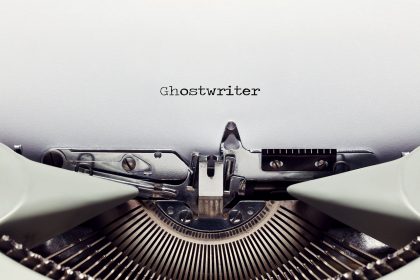
Do You Need a Prologue?
No.
Should You Write a Prologue?
No.
Is a Prologue Ever a Good Idea?
It’s not.
Why a Prologue Is a Bad Idea
As a book distributor and marketer, I never truly gave prologues the attention I do now. As a literary agent, I am reading the first 25 pages of hundreds of manuscripts every month. I have been overwhelmed by the number of prologues that are kicking off the novels and non-fiction manuscripts I am seeing.
Out of curiosity, I opened up 20 novels in my query pile. 19 had prologues. NINETEEN!
For those of you wondering why this is so frustrating, there are a few things that these manuscripts all have in common:
- The prologues throw facts and backstory at the reader before they have had a chance to get to know and like the characters.
- Prologues confuse the reader until they get into the rest of the book. This is not serving the reader.
- Editors will only read a few pages of a manuscript and the prologues are never a good use of that limited attention space.
- The prologue is rarely as well written as the first chapter.
- The prologue is often used to short-cut the story-telling and that gives agents and editors the chance to judge the story as less crafted than it actually is.
If you are looking to court your readers and perhaps even attract the approval of a traditional publisher, may I make the following suggestion?
Throw Out Your Prologue
Non-fiction
Take the facts and elements that were in your prologue and write them into your book.
If you are a non-fiction author, your introduction is likely an explanation as to why you wrote the book. The time to take up a reader’s time with YOUR motives is AFTER you have earned their trust and interest, not before. Start your book by addressing the readers goals, not your own.
Fiction
Novelists? Any element in your prologue that advances the story should be written IN the story.
If you need a prologue to share back-story or history of your characters, you are not done writing your novel. A good conversation between characters will allow you to share the history. Again, earn the trust and interest of your readers before asking them to care about back-story and motives.
Prologue Challenge
If you’re still not convinced you can write your book without a prologue, I have a challenge for you. Complete your first draft without one.
Once the entire book is written, once the entire story has been told, once all of your guidance has been shared – THEN (and only then) should you write an introduction or prologue. You will find that you most likely don’t have anything left to say. (And that is PERFECTLY okay!)
Do You Need a Prologue?
No. The agents and editors you are trying to attract will take you much more seriously for telling your story without any caveats.









I call BS. An awkward and unnatural conversation for the sole purpose of avoiding a “prologue” is not an improvement to a book. If you have a temporally separate event that is critical to your story, but involves characters that don’t exist in your main timeline (like the genesis of a prophecy), the PROPER place for it is in a prologue. I don’t know how many times I’ve ended up pawing through the early parts of a book going “Who was that guy?” or “What is that thing?” when I could have just looked in the prologue–except the author subscribed to this “no prologue” rule.
Agree with all this.
My prologues don’t deal with past events but they’re too short for a chapter (I think).
I don’t understand when people say, ‘I don’t read prologues’.
Why wouldn’t you?
They’re an integral part of the story.
Sheesh.
Fine, I’ll just call it Chapter One and be done with it. I don’t understand this hatred toward what is a part of the book. You hate epilogues too? Maybe I’ll just call that a chapter two.
[…] (less than two pages before changing focus). It isn’t fundamental to the story that follows. Writing resources advise against prologues despite online polling that states 84% of the audience will read […]